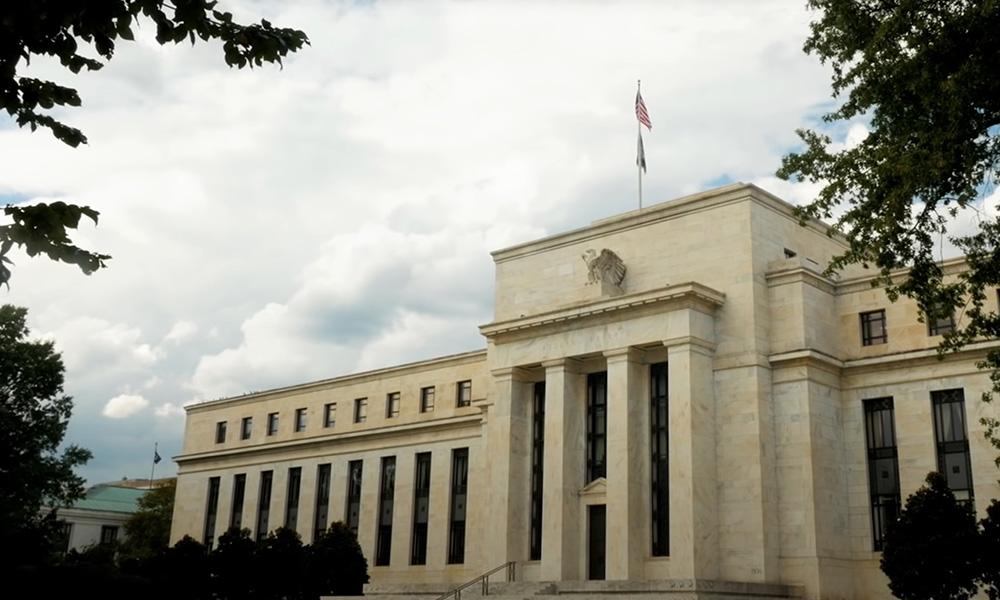Trump makes a major statement: Treasury Secretary Bensont will not be elected as the chairman of the Federal Reserve, and Kugler's resignation triggers a personnel storm!
2025-08-06 09:11:38

Fed personnel changes: Kugler's departure triggers chain reaction
Kugler's "surprise" departure
In an interview with CNBC, Trump revealed that the early departure of Federal Reserve Governor Kugler came as a "surprise" to him. Kugler's term was originally set to end on January 31, 2026, but her sudden departure provides Trump with an opportunity to quickly restructure the Fed's personnel. Kugler, appointed by former President Biden, not only leaves a key seat vacant on the Federal Reserve Board but also paves the way for Trump to nominate a new Fed Chair. The newly nominated governor will not only fill the remainder of Kugler's term, which ends in May 2026, but is also expected to become Trump's preferred choice to succeed Powell.
Trump stated that he would select Kugler's successor from a pool of four candidates, specifically mentioning current National Economic Council Director Hassett and former Federal Reserve Governor Walsh as "very good" choices. Furthermore, according to reliable sources, current Federal Reserve Governor Waller is also under consideration, although his stance on interest rate cuts differs somewhat from Trump's expectations. Trump emphasized, "There are many qualified people," and promised to announce the final nominee "soon," a statement that undoubtedly casts a veil of mystery over the Fed's future policy direction.
The new candidate's dual mission
The newly nominated Fed governor will initially serve out the remainder of Kugler's term, but Trump may have made it clear that he wants this person to serve a full 14-year term and ultimately succeed Powell as Fed Chair. This means the new governor will begin to exert significant influence over policy meetings in the coming months, particularly on key issues such as monetary policy, interest rate adjustments, and addressing inflation. Trump even bluntly stated, "Many people will ask, if that's the case, why not just pick the next Fed Chair? That's a possibility." This statement demonstrates his deep consideration of Fed personnel arrangements and suggests that he hopes to further consolidate his influence over the central bank through this nomination.
Finance Minister preferred? Bessant ruled out
Bessant's Choice
Treasury Secretary Jeff Bessant was widely speculated to be a strong contender for a seat on the Federal Reserve Board. However, Trump has stated explicitly that Bessant will not run for the position, preferring to remain Treasury Secretary. This decision came as a surprise, given Bessant's fiscal policy experience and close relationship with Trump made him a popular choice. However, Bessant's continued tenure also reflects Trump's strategic planning regarding economic policy: he may prefer Bessant to continue promoting his tax cuts and trade policies at the Treasury Department, while handing over the leadership of the Federal Reserve to other candidates.
Candidate background and policy orientation
Among the candidates Trump has mentioned, National Economic Council Director Hassett is drawing attention for his conservative economic stance, while former Federal Reserve Governor Walsh is considered a "safe bet" due to his extensive experience in monetary policy. Current Governor Waller advocates for gradual interest rate cuts, but the pace and magnitude of his approach fall short of Trump's expectations for loose monetary policy. Trump has not revealed the identity of his fourth candidate, but speculation is rife that he may be an economist or policymaker more aligned with the White House's stance. The policy leanings of these candidates will directly influence the Fed's future interest rate decisions and its response to inflation.
Policy Game in the Economic Context
Trump and Powell's feud
Since returning to the White House in January 2025, Trump has been relentless in his criticism of Federal Reserve Chairman Powell. He has repeatedly publicly accused Powell of failing to cut interest rates in a timely manner to stimulate economic growth, and at one point even considered firing him. Meanwhile, Fed policymakers face a dilemma: on the one hand, signs of an economic slowdown and a weakening job market are becoming increasingly apparent; on the other, inflation is well above the 2% target, and Trump's tariff policy threatens to further push up prices. At its meeting last week, the Fed decided to maintain its policy rate at 4.25%-4.50%, but Waller dissented, arguing that the inflation risk from tariffs is limited and that the sluggish job market requires a rate cut to boost it.
Employment Data Troubles and the Statistics Bureau Crisis
On the same day Kugler announced his resignation, Trump fired Bureau of Labor Statistics Director Erika McEntarfer, dissatisfied with the slowing growth shown in the July jobs report, and baselessly accused the bureau of manipulating data to discredit his administration. This move sparked a strong response from the global economic and statistical communities. Michael Strain, director of economic policy studies at the American Enterprise Institute, warned that Trump's choice of Census Bureau head and his decision on the Federal Reserve Chair will face increased scrutiny. He bluntly stated, "If an agency is controlled by a crony, the credibility of the data will be questioned, which is a more serious problem." Strain also speculated that under external pressure, Trump may have realized the importance of Federal Reserve independence, especially amidst the growing wavering confidence of global investors in the stability of US economic data and policies.
Future Outlook: Federal Reserve Independence and Economic Challenges
Senate confirmation challenges
Both the new governor to fill Kugler's seat and the future nominee for the Fed Chair will undergo rigorous Senate scrutiny and confirmation. The new governor will face another Senate vote in early 2026 to complete his full 14-year term. The nominee for the Fed Chair will undergo a separate confirmation process, a process that can be complicated by partisan disagreements. Whether Trump's nominee successfully passes Senate confirmation will directly impact his control over the Fed and the direction of future monetary policy.
The game between tariffs and inflation
Economists widely believe that the import tariffs and trade policies implemented by Trump since taking office are significant factors contributing to rising inflation and a slowing labor market. One reason the Federal Reserve has been hesitant to cut interest rates is the uncertainty surrounding the inflationary impact of tariffs. The weak July jobs report further exacerbated market concerns about an economic slowdown, prompting investors to bet on a rate cut at the Fed's September 16-17 meeting. However, Trump's intervention in the Fed and his attacks on the Bureau of Labor Statistics may further undermine market confidence in US economic data and increase uncertainty in policymaking.
Summary: The interweaving of personnel changes and economic prospects
Trump's latest comments on Federal Reserve personnel not only reveal his intention to intervene strongly in economic policy but also pose new challenges to the Fed's future independence and policy direction. Kugler's unexpected departure presents Trump with an opportunity to reshape the Fed, while Bessant's omission from the shortlist highlights the division of labor within his economic team. Amidst the combined pressures of high inflation, weak employment, and tariffs, the nominations of new Federal Reserve governors and a future chairman will have profound implications for the US economy and global markets. Meanwhile, Trump's controversial decision regarding the Bureau of Labor Statistics further underscores his aggressive economic governance style, potentially posing further risks for future policymaking. Global investors and economic observers are closely watching Trump's next moves and the Fed's response to this complex economic environment.
In the short term, the US dollar may face downward pressure due to policy uncertainty, data controversy, and expectations of rate cuts, but the extent of this pressure will depend on the new nominee's policy stance and Senate confirmation results. In the medium to long term, if Trump successfully pursues easing policies, the dollar could weaken further. If the Fed maintains its independence and prioritizes combating inflation, the dollar is expected to remain strong. With current market sentiment leaning toward a wait-and-see approach, the dollar is likely to experience significant volatility in the coming weeks, driven by the Fed's September meeting and the progress of the nomination.
- Risk Warning and Disclaimer
- The market involves risk, and trading may not be suitable for all investors. This article is for reference only and does not constitute personal investment advice, nor does it take into account certain users’ specific investment objectives, financial situation, or other needs. Any investment decisions made based on this information are at your own risk.





















